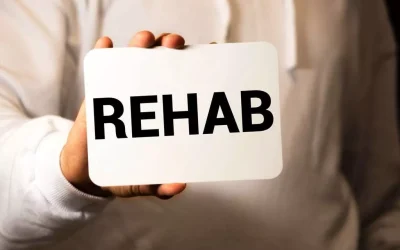Content
It can also be assuring to know that most people have the same problems and need to make similar changes. 3) Clients feel they are not learning anything new at self-help meetings and begin to go less frequently. Clients need to understand that one of the benefits of going to meetings is to be reminded of what the “voice of addiction” sounds like, because it is easy to forget. Clinical experience has shown that common causes of relapse in this stage are poor self-care and not going to self-help groups. In the second stage of recovery, the main task is to repair the damage caused by addiction [2].
Gratitude is a powerful tool for drug addiction recovery that involves acknowledging and appreciating the positive aspects of life, even in the face of challenges or adversity. By cultivating a strong and reliable support network, especially in early recovery, individuals can improve their chances of staying on the path to long-term recovery. 1) Clients often want to put their addiction behind them and forget that they ever had an addiction. They feel they have lost part of their life to addiction and don’t want to spend the rest of their life focused on recovery. Just as there are numerous views on human nature and multiple therapy models, there are different views on relapse prevention. These relapse prevention models offer a unique take on the process.
Substance Abuse
To create a successful relapse prevention plan, you must first complete rehab. During addiction treatment and behavior therapy programs, you’ll learn your individual addiction triggers. Knowing the places, times, and experiences that trigger urges to use is a vital step to creating a successful plan of action.
- Clients are encouraged to identify whether they are non-users or denied users.
- This means it is possible for people in recovery to relapse, or return to drug or alcohol use after a period of abstinence.
- While you’re in addiction treatment they will cover each technique more in-depth so you can better understand when you should use them.
- Relapse-prevention therapy and mind-body relaxation are commonly combined into mindfulness-based relapse prevention [30].
This type of program is a necessary part of the addiction recovery process. It enables a person to develop key coping skills and strategies to help https://ecosoberhouse.com/ you through high-stress times in your life. These are the times that, in the past, you may have turned to drugs and alcohol to help you overcome.
Get Started Here
When your thoughts drift to using drugs or alcohol, gently steer them away and focus on healthy subjects. As part of your relapse prevention plan, you’ll create a list of activities that you enjoy. At this point, you’ll want to review those to help you keep busy. A relapse in addiction is when an individual goes back to full usage of the drug or alcohol that they were attempting to abstain from. Luckily, relapse can be avoided or at least caught in its early stages if there is a proper relapse prevention plan in place.

Individuals use drugs and alcohol to escape negative emotions; however, they also use as a reward and/or to enhance positive emotions [11]. In these situations, poor self-care often precedes drug or alcohol use. For example, individuals work hard to achieve a goal, and when it is achieved, they want to celebrate. But as part of their all-or-nothing thinking, while they were working, they felt they didn’t deserve a reward until the job was done. Since they did not allow themselves small rewards during the work, the only reward that will suffice at the end is a big reward, which in the past has meant using.
Why is a Relapse Prevention Plan Important in Recovery?
As mentioned, the relapse prevention plan should be personal so that whatever it is that might induce relapse in the person is properly identified and noted. The general and basic goal is to stay sober, and once this is recognized, it could be easier to stick to, as opposed to the more complex goals that others might think of. The rehabilitation program used to treat someone with a substance abuse disorder is a carefully plotted-out process.

Early warning signs of relapse often come long before an addict actually relapses. Perhaps high demands at work lead to stress that may eventually trigger you to use. Conflict within your interpersonal relapse prevention plan relationships seem unmanageable, and your tendency is to rely on substances to cope. Identifying early signs of relapse gives you a plan of action to respond with before things are out of control.
Examples of self-care strategies include exercise, healthy eating, meditation, getting enough sleep, and engaging in activities that bring joy or relaxation. Building and maintaining a support network can be done by reaching out to loved ones or attending self-help groups. It’s necessary to communicate openly and honestly with your support system and to recognize that they may need support as well. Despite its prevalence, working to prevent relapse is vital as it can mean the difference between life and death. If you have specific goals you want to achieve, such as going to college or seeing your family more, write those down as inspiration. Having your goals in front of you can motivate you along the way, and help you steer clear of relapse.
0 Comments